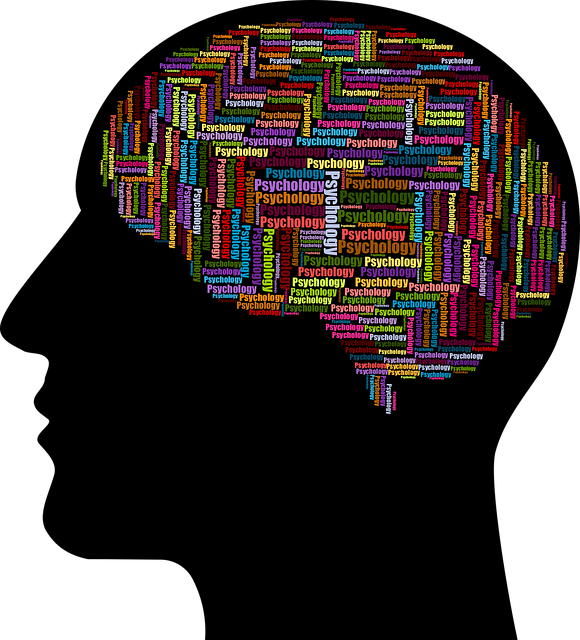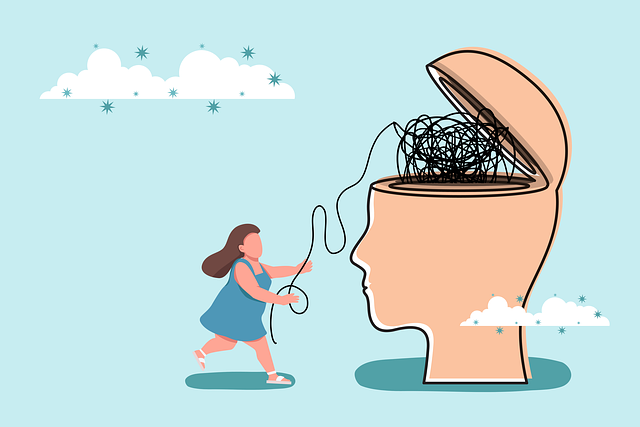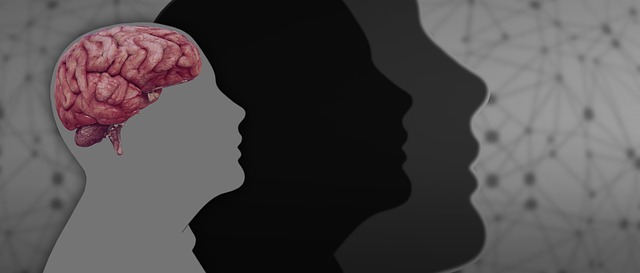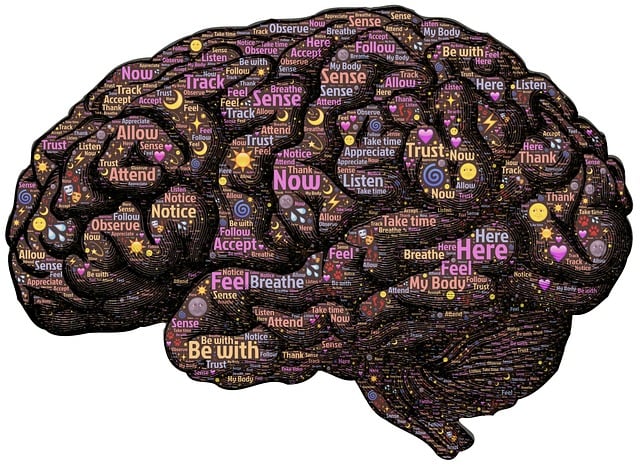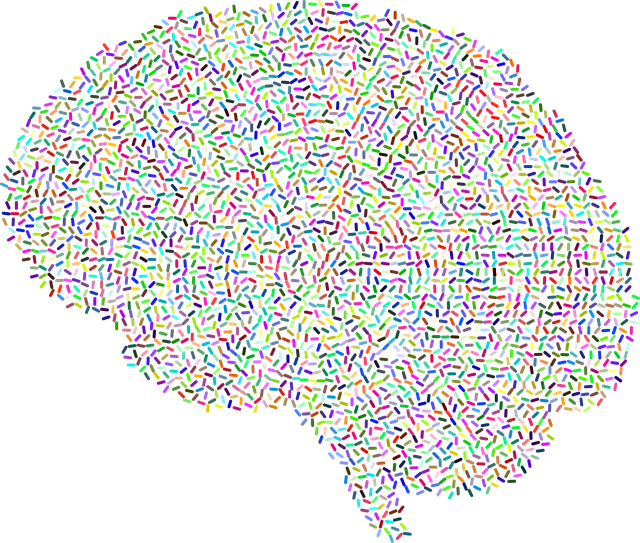The text emphasizes that stigma around mental illness hinders access to support and recovery, particularly in areas with limited resources like Littleton Neuro Disorders Therapy (LNDT). This leads to prolonged suffering due to internalized negative perceptions. To combat this, a multi-faceted approach is needed including: mental wellness promotion through journaling and conversations, risk assessment training for professionals, cultural sensitivity education, evidence-based treatments, prevention of provider burnout, and community engagement via workshops and campaigns. LNDT plays a key role by offering innovative programs, hosting seminars, and launching a podcast series to educate and normalize mental health discussions, thereby fostering an inclusive environment for recovery.
Mental illness stigma remains a significant barrier to effective treatment and recovery. This article explores comprehensive strategies to reduce this pervasive societal issue, focusing on understanding its profound impact on mental health. We delve into evidence-based approaches, highlighting the role of Littleton Neuro Disorders Therapy in fostering understanding and compassion. Additionally, we examine the crucial contribution of community engagement and education in creating supportive environments that promote healing and break down stigma once and for all.
- Understanding the Impact of Stigma on Mental Health
- Strategies for Breaking Down Stigma: A Comprehensive Approach
- The Role of Littleton Neuro Disorders Therapy in Stigma Reduction
- Community Engagement and Education: Cultivating Supportive Environments
Understanding the Impact of Stigma on Mental Health

Stigma surrounding mental illness can have profound effects on individuals’ emotional well-being and their willingness to seek help. It often creates a barrier that prevents people from accessing necessary support, leading to prolonged suffering. When someone faces discrimination or societal judgment due to their mental health struggles, they may internalize these negative perceptions, causing increased anxiety and depression. This self-stigma can make it challenging for them to believe in their ability to recover and live fulfilling lives. As a result, many individuals with neuro disorders struggle in silence, hindering their progress towards healing and recovery.
Efforts to reduce stigma are vital, especially in communities where access to Littleton neuro disorders therapy is limited. Promoting understanding and empathy through mental wellness journaling exercises or guidance can be powerful tools. Encouraging open conversations and sharing personal stories can help break down stereotypes. Moreover, risk assessment training for mental health professionals plays a crucial role in ensuring they are equipped to handle stigma-related issues and provide effective support without further exacerbating the problem through misinformed practices. By addressing these aspects, we contribute to creating a more supportive environment where emotional healing processes can thrive.
Strategies for Breaking Down Stigma: A Comprehensive Approach

Stigma reduction efforts for mental illness require a comprehensive approach that addresses various aspects of society and healthcare systems. One key strategy is to enhance communication strategies in mental healthcare practices, fostering cultural sensitivity. This involves educating both professionals and the public about neurodiversity and different mental health conditions, breaking down misconceptions through open dialogue and personal stories. By promoting understanding and empathy, we can create a more inclusive environment.
Additionally, Littleton Neuro Disorders Therapy can play a significant role in stigma reduction by providing evidence-based treatments tailored to individual needs. Therapists can employ creative communication techniques, such as art therapy or mindfulness exercises, to engage patients and their families. Burnout prevention among healthcare providers is another critical component, ensuring professionals remain empathetic and effective in their interactions with individuals facing mental health challenges. Through these comprehensive efforts, we move towards a more compassionate and supportive society for those navigating mental illness.
The Role of Littleton Neuro Disorders Therapy in Stigma Reduction

The Littleton Neuro Disorders Therapy (LNDT) plays a pivotal role in reducing the stigma associated with mental illness within communities. Through its innovative programs, LNDT aims to foster understanding and empathy, two key components in breaking down societal barriers. The therapy focuses on resilience building, empowering individuals to navigate their mental health challenges with strength and confidence. By creating safe spaces for open dialogue, it encourages personal stories to be shared, thereby humanizing the experience of mental illness.
In addition to its direct therapeutic interventions, LNDT contributes to stigma reduction through initiatives like the Cultural Sensitivity in Mental Healthcare Practice seminars, which educate professionals on the diverse cultural perspectives surrounding mental wellness. They also produce a Mental Wellness Podcast Series, providing accessible information and personal narratives that challenge stereotypes. These efforts collectively help to normalize conversations about mental health, ensuring that support is not only available but also welcomed by all.
Community Engagement and Education: Cultivating Supportive Environments

In reducing the stigma surrounding mental illness, community engagement plays a pivotal role. By fostering open dialogue and education, supportive environments can be cultivated where individuals with neuro disorders, such as those seeking Littleton Neuro Disorders Therapy, feel understood and accepted. This involves hosting workshops, seminars, and awareness campaigns that educate the public about various mental health conditions, dispelling myths, and promoting empathy. Engaging community leaders, schools, and local businesses in these efforts ensures a widespread understanding of mental illness, breaking down barriers and encouraging early intervention.
Effective communication strategies are integral to this process. Encouraging open conversations about mental health can normalize discussions around depression prevention and stress reduction methods. Community members equipped with knowledge on recognizing signs and symptoms can offer crucial support, guiding individuals towards appropriate resources like Littleton Neuro Disorders Therapy, thereby facilitating quicker recovery and improved well-being.
Mental illness stigma reduction is a multifaceted endeavor that requires understanding, education, and community engagement. As highlighted by strategies discussed and the integral role of Littleton Neuro Disorders Therapy, breaking down stigma can significantly improve mental health outcomes. By fostering supportive environments through comprehensive approaches and community involvement, we can create a more inclusive society where individuals with mental health challenges are empowered to seek help without fear of judgment. This collective effort is essential in ensuring everyone has access to the care they need for optimal well-being.




